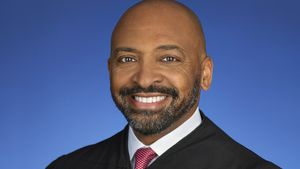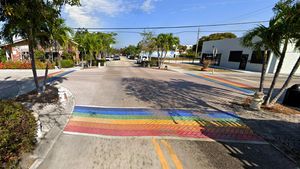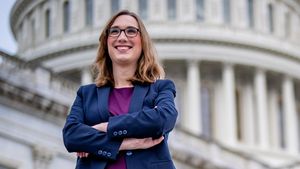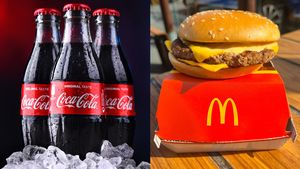On Thursday, May 30, Donald Trump was found guilty of 34 felony counts related to paying adult film actress Stormy Daniels with "hush money" and falsifying business records. As reported by Out's sister publication The Advocate, this has been the first criminal trial of any former U.S. president and the first-ever conviction.
While Trump is still facing several other criminal charges in the next few months, many people are relieved that he's finally been officially charged with one of his various allegedly crimes. In the meantime, however, a lot of follow-up questions are coming to mind — and we're here to help!
Is Trump going to prison?
It's uncertain. It is possible for Trump to go to prison following his official sentencing scheduled for July 11. However, the political and cultural significance of Trump going to prison can sway Judge Juan M. Merchan's decision one way or another. The 2024 Republic National Convention is set to take place between July 15-18 — just four days after Trump's sentencing is scheduled for.
Is Trump still eligible to run for President in 2024?
Yes. Generally speaking, being convicted of a felony does not prevent a person from running to become U.S. President in 2024. The only three qualifications required for someone to run for President are being at least 35 years of age, being a natural-born citizen, and having lived in the U.S. for 14 years or longer. Alternately, there aren't any guidelines in place to disqualify Trump as a candidate due to this conviction.
Can a convicted felon like Trump still run for President?
Yes. All signs indicate that Trump is moving forward with his presidential campaign in 2024. In fact, following his conviction of these felonies, Trump appeared in a press conference to claim that this trial was "rigged," label Judge Merchan as "the devil," and note that he is "very upset" with his team of lawyers (via The New York Times).
Can Trump vote in the November 2024 elections?
Yes. Trump is a registered voter in Florida, whereas this conviction took place in New York. Even though Florida bars convicted felons from voting in an election until they've completed prison time, Florida applies those voting laws in relation to the state where a conviction took place. Unless Trump is sentenced to prison in the New York case prior to November 2024, he will still be allowed to vote for himself in Florida.







































































